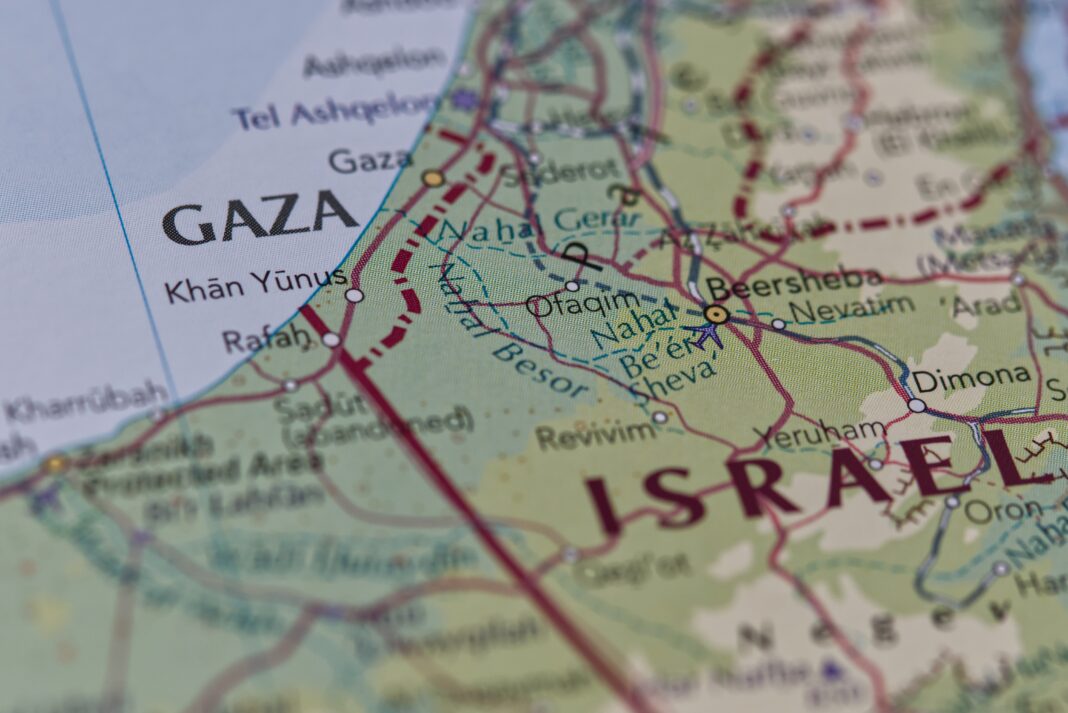by Anna Violante
7 October
Unexpectedly, and despite the high-tech control system of the Gaza fence, a contingent of Hamas and Islamic Jihad terrorists infiltrate Israel and kill over 1200 people, civilians and military. The civilian victims are mainly Jews, but Thai workers and Arab Bedouins are also killed. Among the Jews are young people at a rave party and several pro-peace and pro-Palestinian kibbutzim. More than 200 people are kidnapped and held hostage.
8 October
Far-right Nettanyahu government’s vendetta begins. Israel formally declares a state of war and starts bombing Gaza after seizing it and cutting off its residents’ access to electricity, food, medicine and drinking water.
9 October to this date: violations of human rights in Gaza
The carnage is in full swing and bound to continue. Local journalists, UNWRA and NGOs workers, foreigners and Palestinian adults and children are trapped in the siege and dying every day. The ongoing Israeli bombardment and siege has created an unprecedented humanitarian crisis. Demonstrators have been taking to the streets around the world calling for a ceasefire, UN Secretary-General Antonio Guterres repeatedly insists on it. He’s been accused of anti-Semitism by Israeli authorities, as is anyone who calls for an end to the slaughter. The impact on Gaza’s civilian population has been devastating, with UN human rights experts estimating that 80% are living in dire conditions. Northern Gaza faces severe food shortages and limited access to essential resources. The crisis has left a quarter of the population struggling for food and water, pregnant women and more than 335,000 children under five at high risk of malnutrition and deadly disease. Since the beginning of the siege, 2.3 million Palestinians have been able to rely on humanitarian aid only in fits and starts. Over 60% of homes have been destroyed, causing mass displacement and raising concerns about violations of international law, including the possible war crime of enforced starvation. The international community, including the US, is under increasing pressure to intervene and address the humanitarian crisis, but Netanyahu has turned a deaf ear even to his American allies. The continued bombardment was followed by a land invasion in early November. At the end of the same month, a week-long ceasefire was agreed with the mediation of Qatar and Egypt. A short breath of relief, and for the survivors, hell began all over again. Life in Gaza is as precarious as ever. The words of UNWRA define the current children’s situation well: “The plight of Gaza’s children is particularly heart-breaking. A generation of children has been traumatised and it will take years to heal. Thousands have been killed, maimed and orphaned. Hundreds of thousands have been denied an education. Their future is in jeopardy, with far-reaching and long-lasting consequences.”
In the West Bank and East Jerusalem In a press release on 1 December, the UN Human Rights Office in Ramallah reported 3000 new arrests, most of them in administrative detention, i.e. without trial. They include women, teenagers and even children. Many are tortured and some die in prison under mysterious circumstances. Since 7 October and as of 22 January 2024, 358 Palestinians have been killed, including 91 children. They’ve been murdered by settlers and the IDF, often for no reason at all. At the end of October, the far-right security minister, Itamar Ben-Gvir, loosened the rules for the possession of weapons by illegal settlers, resulting in an increase in attacks on Palestinians and their property. Many Palestinians have been confined to their homes under long curfews, while settlers have been allowed to roam freely and plunder Palestinians’ farms and goods.
In Israel Palestinian students have been threatened with attack by far-right militants, according to the pro-peace NGO Standing Together. So far, the right to protest has been restricted, but the organisation, which has been organising deliveries of food and supplies to those at risk, was also behind the first major demonstration in Haifa last week, calling for peace and an end to the occupation, with Jews and Palestinians living together in a secular state. After a period of silence due to the shock of 7 October, the number of Jews protesting against the war has increased considerably, especially the relatives of the deaths and hostages, who are calling daily for a ceasefire and the release of their loved ones. Their protests are increasingly anti-government, with harsh accusations against the Prime Minister and his right-wing cronies, such as that of the mother of a hostage killed in a Gaza tunnel, possibly gassed by IDF soldiers, according to Haaretz. The writer questions whether, under the laws of war to which Israel is bound, the use of such tactics is legal. And concludes: “If such a tactic was used, who authorised it?”
Calls for a stop to violations of humanitarian law by Bibi’s government, from collective punishment to ethnic cleansing, have been made by intellectuals, politicians, UN representatives and ordinary people outside and inside Israel. The Israeli rulers continue to deny them and continue on their path of total annihilation of Hamas and possibly the Palestinian people. Attempts at a new agreement for a temporary ceasefire have been rejected by both Israel and Hamas. On 27 February, Indonesia will take the lead at the International Court of Justice in a case concerning Israel’s long-standing occupation of Palestinian territory, which is considered a violation of International Humanitarian Law. It’ll be a temporary declaration, but Slovenia and probably other countries are expected to follow.
Cover photo ©Below the Sky/Shutterstock.com
























